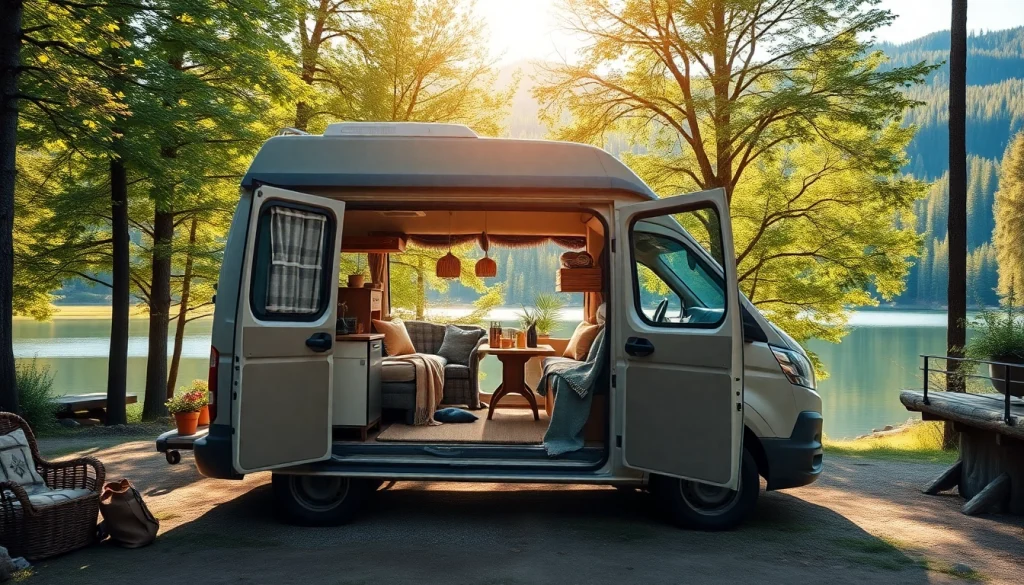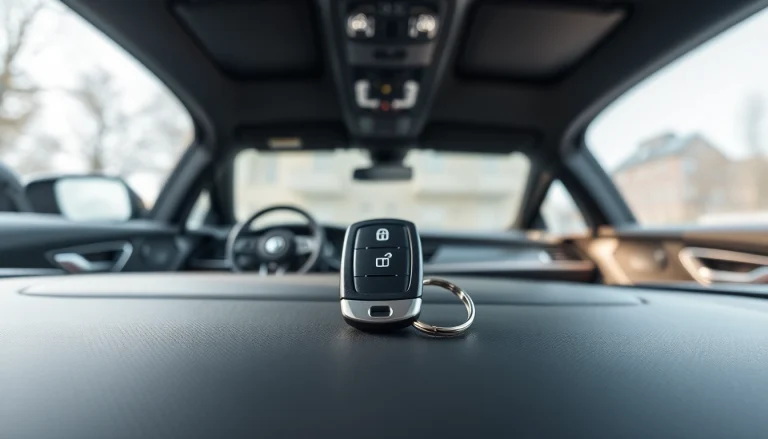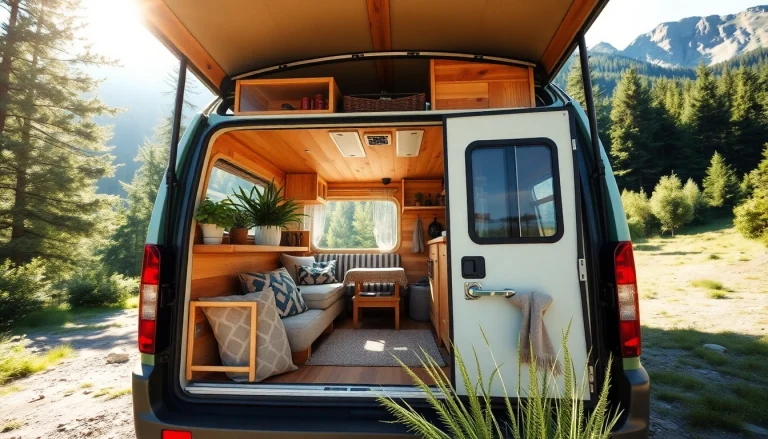
Understanding the Camper Van: Definition and Uses
What Is a Camper Van?
A Camper Van is a versatile vehicle designed for travel and accommodation. Typically based on a standard commercial van chassis, camper vans range from simple models with essential amenities to elaborate setups that rival full-sized recreational vehicles (RVs) in comfort and sophistication. They often include a sleeping area, kitchen facilities, and sometimes a bathroom, providing the perfect blend of mobility and home-like accommodation.
Common Uses and Benefits of Owning a Camper Van
Owning a camper van opens the door to a myriad of uses and benefits:
- Travel Freedom: Camper vans allow you to explore without the constraints of hotel bookings or travel schedules.
- Affordability: With a camper van, you can save on lodging and dining expenses during road trips.
- Flexibility: You can plan spontaneous trips, adjusting your route and destinations on a whim.
- Connection with Nature: Many camper van enthusiasts benefit from the ability to park in scenic areas, offering access to nature.
- Community: Being part of the camper van culture often means connecting with other travelers and sharing experiences.
Differences Between Camper Vans and Other RV Types
While camper vans share some features with RVs and motorhomes, several key differences distinguish them:
- Size: Camper vans are generally smaller and easier to drive than larger RVs, making them suitable for city driving and tight parking situations.
- Cost: Typically, camper vans are more affordable than large motorhomes; they often incur lower insurance and operating costs.
- Usage: Camper vans are favored for weekend getaways and short trips, while larger RVs are often used for long-term travel or full-timing.
Essential Features of a Quality Camper Van
Interior Amenities: What to Look For
When selecting a camper van, the interior layout is crucial. Here are some amenities to consider:
- Sleeping Arrangements: Depending on your needs, look for convertible seating options that transform into beds or dedicated sleeping areas.
- Kitchen Facilities: A compact kitchen unit with a stove, sink, and refrigerator can elevate your camper van experience.
- Bathroom Features: Some camper vans come equipped with a toilet and shower, which can be a significant convenience.
- Storage Space: Smart storage solutions are essential, whether it’s overhead cabinets or externally accessible compartments for gear.
Driving and Handling Characteristics of Good Camper Vans
Driving a camper van should be as enjoyable as the destinations it takes you to. Consider the following driving features:
- Handling: Many camper vans are designed to handle like cars, offering responsive steering and tight turning radii.
- Engine Performance: A good balance of power and fuel efficiency is essential, especially for those planning long trips.
- Comfort: Look for high-quality seats with good lumbar support to enhance driving comfort on long journeys.
Safety and Compliance Features to Consider
Safety is paramount when traveling in any vehicle, and camper vans should be no exception:
- Safety Ratings: Always check crash test ratings and safety features of different models.
- Driver Assistance Technologies: Features like lane departure warnings, blind-spot monitors, and adaptive cruise control enhance safety while driving.
- Emergency Equipment: Ensure your camper van includes essential safety gear, such as a spare tire, first aid kit, and fire extinguisher.
Evaluating Costs: Budgeting for Your Camper Van
Initial Purchase Prices and Financing Options
Camper van prices can vary greatly based on make, model, and condition. Generally, they start at around $10,000 for used models and can exceed $200,000 for high-end new ones. When purchasing, consider:
- Research: Always research and compare prices from various sellers and marketplaces.
- Financing Options: Look into loans or leasing plans, which can make your camper van more financially accessible.
Maintenance Costs Over Time
Owning a camper van includes ongoing maintenance costs, which typically consist of:
- Regular Servicing: Annual servicing for engine and systems maintenance can help mitigate larger repair costs later.
- Tire Replacements: Depending on usage, tires might wear more quickly than in standard vehicles.
- System Checks: Regular inspection of plumbing, electrical systems, and other amenities is essential for safety and functionality.
Insurance and Other Ongoing Expenses
In addition to maintenance, budget for insurance and other costs:
- Insurance: Coverage can vary based on the value of the camper van; compare policies to find the best rates.
- Fuel Costs: Depending on the engine, fuel expenses can add up, especially on long trips.
- Campground Fees: Many locations charge for overnight stays, and this can influence your travel budget.
Making the Most of Your Camper Van Adventures
Tips for Planning Your Road Trips
Planning is crucial for a successful camper van adventure:
- Choose Your Destinations Wisely: Research scenic routes and destinations that allow camper van camping.
- Check Weather Conditions: Always be aware of the weather forecast to prepare for potential road challenges.
- Plan for Stops: Calculate the distance between stops, ensuring you relax and enjoy your journey.
Must-Have Accessories for Your Camper Van
To enhance your travel experience, consider adding these must-have accessories:
- Portable Generator: Great for powering devices and appliances while off-grid.
- Camping Gear: Foldable chairs, tables, and outdoor cooking equipment can improve your campsite experience.
- Navigation Tools: A reliable GPS or a dedicated app can aid in finding routes and managing parking.
Community and Resources for Camper Van Owners
Connecting with other camper van enthusiasts can be incredibly beneficial:
- Online Forums: Websites and social media communities offer support and advice based on shared experiences.
- Meetups: Engaging in local and national meetups introduces you to potential road friends and travel buddies.
- Resource Guides: Various books and websites detail the best camping spots, DIY repairs, and travel tips.
Pros and Cons of Living in a Camper Van
Advantages of a Camper Van Lifestyle
Embracing the camper van lifestyle can come with notable advantages:
- Simplicity: The minimalist lifestyle can lead to a less stressful existence, free from burdensome possessions.
- Adventure: Living in a camper van promotes spontaneous adventures and exploration.
- Self-Sufficiency: Many camper van owners cultivate skills in DIY repair, cooking, and navigation, fostering independence.
Potential Challenges You May Face
However, living in a camper van is not without its challenges:
- Space Constraints: Limited living space can feel cramped, particularly for larger families or groups.
- Weather Conditions: Managing heat, cold, and precipitation can complicate life on the road.
- Parking Restrictions: Finding legal overnight parking can be tricky in urban areas.
Deciding If a Camper Van Is Right for You
Ultimately, the decision to live in or travel with a camper van hinges on personal lifestyle preferences and travel goals:
- Evaluate Your Needs: Consider your desired level of comfort and the type of travel experiences you value.
- Trial Runs: Rent a camper van for a few days to assess how well the lifestyle suits you.
- Research: Engaging with communities and researching models can help clarify your options.




